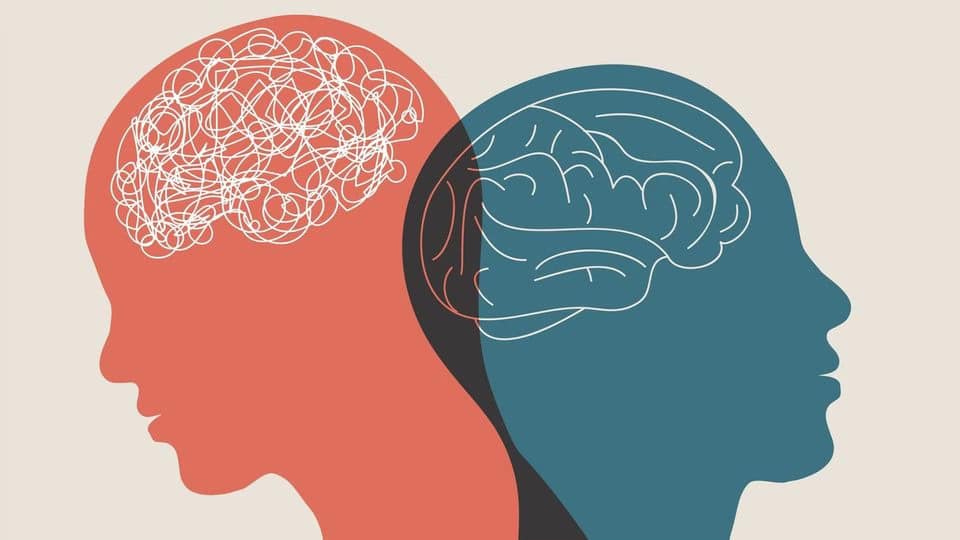In today’s fast-paced world, mental health issues like anxiety and depression have become increasingly common. While they are distinct conditions, they often overlap, making it challenging to differentiate between the two. Both anxiety and depression can significantly impact a person’s quality of life, but understanding their differences is crucial for proper diagnosis and treatment. In this blog post, we’ll explore what sets anxiety apart from depression, how they intersect, and what you can do if you’re struggling with either.
What Is Anxiety?
Anxiety is characterized by excessive worry, fear, or nervousness about everyday situations. It’s a natural response to stress, but when these feelings become overwhelming and persistent, they can interfere with daily functioning. Anxiety disorders encompass a range of conditions, including generalized anxiety disorder (GAD), panic disorder, social anxiety disorder, and specific phobias.
Common Symptoms of Anxiety:
- Excessive worrying
- Restlessness or feeling on edge
- Difficulty concentrating
- Irritability
- Sleep disturbances (trouble falling asleep or staying asleep)
- Physical symptoms such as rapid heartbeat, sweating, trembling, or shortness of breath
People with anxiety often feel as though something bad is going to happen, even if there’s no clear reason for that belief. This constant state of alertness can be exhausting and debilitating over time.
What Is Depression?
Depression, also known as major depressive disorder (MDD), is more than just feeling sad or having a bad day. It’s a serious mood disorder that affects how you think, feel, and handle daily activities. Depression can make it difficult to find joy in things you once loved and may lead to feelings of hopelessness and worthlessness.
Common Symptoms of Depression:
- Persistent sadness or low mood
- Loss of interest in activities you used to enjoy
- Fatigue or lack of energy
- Changes in appetite or weight
- Trouble sleeping or oversleeping
- Feelings of guilt, worthlessness, or helplessness
- Difficulty concentrating or making decisions
- Thoughts of death or suicide
Unlike anxiety, which tends to focus on future events, depression often centers around feelings of emptiness, despair, and a sense of being stuck in the present moment.
Key Differences Between Anxiety and Depression
While anxiety and depression share some overlapping symptoms—such as difficulty concentrating, irritability, and sleep problems—they differ in several key ways:
- Focus of Emotions:
- Anxiety: Centers on fear and worry about the future. People with anxiety are often preoccupied with “what ifs” and potential negative outcomes.
- Depression: Focuses on feelings of sadness, hopelessness, and dissatisfaction with the present. Individuals with depression may struggle to see any positives in their current situation.
- Energy Levels:
- Anxiety: Often involves heightened arousal, leading to restlessness, agitation, or an inability to relax.
- Depression: Typically results in low energy, fatigue, and a lack of motivation.
- Physical Symptoms:
- Anxiety: Can manifest physically through symptoms like racing heart, sweating, dizziness, or gastrointestinal issues.
- Depression: May cause physical symptoms such as chronic pain, headaches, or digestive problems, but these are usually linked to emotional distress rather than heightened arousal.
- Outlook on Life:
- Anxiety: Tends to involve excessive concern about what might go wrong in the future.
- Depression: Often involves a pervasive sense of hopelessness about both the present and the future.
How Anxiety and Depression Overlap
Despite their differences, anxiety and depression frequently coexist. In fact, studies show that nearly half of people diagnosed with depression also experience anxiety. This overlap can make it difficult to distinguish between the two, especially since many symptoms—like irritability, trouble sleeping, and difficulty concentrating—are shared.
Moreover, anxiety and depression can feed into each other. For example:
- Chronic anxiety can lead to feelings of exhaustion and hopelessness, which may develop into depression.
- Conversely, someone who is depressed may become anxious about their inability to cope with daily tasks or improve their situation.
This interconnectedness highlights the importance of addressing both conditions simultaneously in treatment.
Treatment Options for Anxiety and Depression
The good news is that both anxiety and depression are treatable. Effective treatments often include a combination of therapy, medication, and lifestyle changes. Here’s a breakdown of common approaches:
- Therapy:
- Cognitive Behavioral Therapy (CBT): One of the most effective forms of therapy for both anxiety and depression, CBT helps individuals identify and change negative thought patterns and behaviors.
- Mindfulness-Based Therapies: Techniques like meditation and mindfulness can reduce symptoms of both anxiety and depression by promoting relaxation and self-awareness.
- Medication:
- Antidepressants, particularly selective serotonin reuptake inhibitors (SSRIs), are commonly prescribed for both anxiety and depression. These medications work by balancing chemicals in the brain that affect mood and emotions.
- Lifestyle Changes:
- Regular exercise has been shown to boost mood and reduce symptoms of both anxiety and depression.
- A healthy diet, adequate sleep, and stress management techniques (e.g., yoga, deep breathing) can also play a significant role in improving mental health.
- Support Systems:
- Building a strong support network of friends, family, or support groups can provide emotional comfort and encouragement during difficult times.
When to Seek Help
If you’re experiencing symptoms of anxiety or depression that persist for more than a few weeks and interfere with your ability to function, it’s important to seek professional help. Mental health professionals, such as therapists, psychologists, or psychiatrists, can provide an accurate diagnosis and create a personalized treatment plan.
Remember, reaching out for help is not a sign of weakness—it’s a courageous step toward healing and recovery.
Final Thoughts
Anxiety and depression are complex and deeply personal experiences. While they differ in their primary focus and symptoms, they share common ground in their impact on mental well-being. By understanding the distinctions and overlaps between these conditions, we can better recognize the signs and take proactive steps toward managing our mental health.
Whether you’re dealing with anxiety, depression, or both, know that you’re not alone. With the right support and resources, it’s possible to regain control of your life and find peace amidst the chaos.
Disclaimer: This blog post is intended for informational purposes only and should not replace professional medical advice. If you’re struggling with anxiety or depression, please consult a licensed healthcare provider.
Discover more from Pasindu Lakshan Perera
Subscribe to get the latest posts sent to your email.




